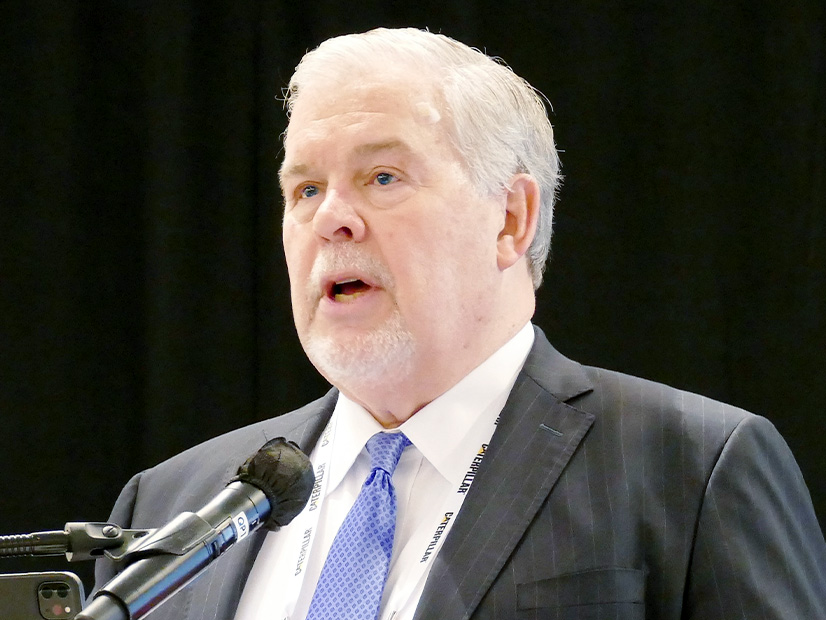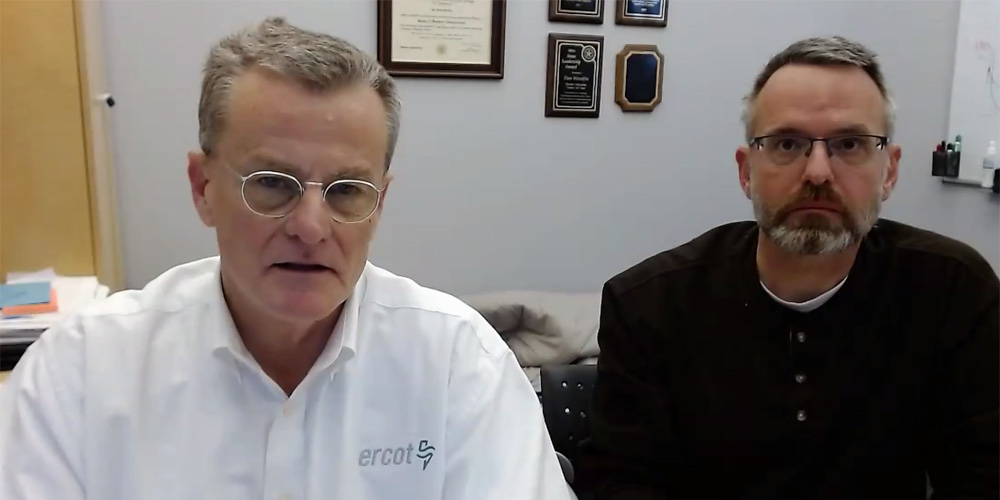
ERCOT’s legal woes intensified Wednesday, with a Texas appeals court ruling against the grid operator’s long-held claim of sovereign immunity from civil litigation and blame being laid on Gov. Greg Abbott in a U.S. bankruptcy court for the high market prices that contributed to several electric providers going under following the February 2021 winter storm.
The Fifth District Court of Appeals in a 12-1 ruling found that the grid operator’s immunity claim has no basis in Texas law. The case is destined for review by the Supreme Court of Texas. The high court last year avoided making a determination on ERCOT’s claim to sovereign immunity. (See Texas Supremes Sidestep Ruling on ERCOT Lawsuit Shield.)
“The Supreme Court has not extended sovereign immunity to a purely private entity neither chartered nor created by the state, and this court will not create new precedent by extending sovereign immunity to ERCOT,” Justice Erin Nowell wrote in the opinion (05-18-00611-CV).

Meanwhile in Houston, former ERCOT CEO Bill Magness testified that he was following Abbott’s orders when he directed wholesale power prices to remain at their $9,000/MWh price cap for 33 additional hours. That resulted in $16 billion in market charges that the grid operator’s Independent Market Monitor said were incorrect. (See Texas PUC Won’t Reprice $16B Error.)
Magness said he was told by former Public Utility Commission Chair DeAnn Walker that Abbott wanted the commission and ERCOT to do everything possible to prevent further outages, even as generators were thawing out and returning to service.
Walker followed Magness to the stand Wednesday. While she didn’t exactly corroborate Magness’ testimony, she did say Abbott had told her to “get the power back on” and keep it on. Walker spent several days at ERCOT’s main operations center in Taylor, where she was joined by Abbott adviser Ryland Ramos.
According to Magness’ log of contemporaneous notes, tweeted by Houston Chronicle investigative reporter Jay Root, Walker said Abbott had told her it was “imperative” that the outages not resume. “She was sent to make sure that did not happen, and to come up with solutions to potential problems that could send the system back into outages,” Magness wrote.
Abbott has disputed the account. In statements to the media, Abbott’s gubernatorial campaign has said that he only “instructed everyone involved that they must do what was needed to keep the power on and to prevent the loss of life.”
ERCOT decline to respond to the developments, saying it can’t comment on pending or active litigation.
At issue in the proceeding before the U.S. Bankruptcy Court for the Southern District of Texas is $1.9 billion in market charges ERCOT assigned to Brazos Electric Power Cooperative during the high-price period last February. Brazos is not disputing how much energy it bought to compensate for its own plants that did not run, but it argues it should owe about $800 million (21-03863).
The cooperative filed for Chapter 11 bankruptcy last March when it became evident it wouldn’t be able to pay the billions it owed. As of December, ERCOT said Brazos was still $1.89 billion short to the market. (See ERCOT’s Brazos Electric Declares Bankruptcy.)
Attorney Charles Gibbs, who represents Brazos’ largest member, CoServ Electric, popped in to the Infocast ERCOT Market Summit last week to deliver a brief update on the case.
“This will play out over the next few years. That’s the financial overhang of the storm,” he said.
Gibbs predicted that the judge overseeing the case, David R. Jones, will likely find in favor of Brazos. He said Jones may find the charges are not a legal good, or associated with priority claims, but noted that what took place during the storm was hardly the ordinary course of business.
“It can’t be a charge incurred during the ordinary course of business,” Gibbs said.
What happens if the ruling goes against ERCOT? he was asked.
“How does ERCOT pay? They’re a clearinghouse,” Gibbs said. “What assets do they have?”
The Fifth District ruling only adds to the grid operator’s legal problems. If upheld by the Texas high court, it would open the door to hundreds of lawsuits from Texas citizens seeking compensation for family members who died and property damage.
Attorney Majed Nachawati, with Fears Nachawati, said in a statement to RTO Insider that he looks forward to getting justice for his clients.
“We remain hopeful that state and federal prosecutors will hold the power companies and corrupt politicians accountable in the criminal justice system as well,” he said. “The public demands accountability, and we all must do our part to eliminate corruption and greed that harms everyone.”
The appeals court ruling stems from a lawsuit filed by energy investment company Panda Power Funds over $2.2 billion it said in invested to build three power plants in Texas. Panda said the decision was based on ERCOT projections that indicated energy supply shortages for years to come. The company has alleged the grid operator committed fraud and that Panda is selling power for less than what it expected because of the erroneous projection.



